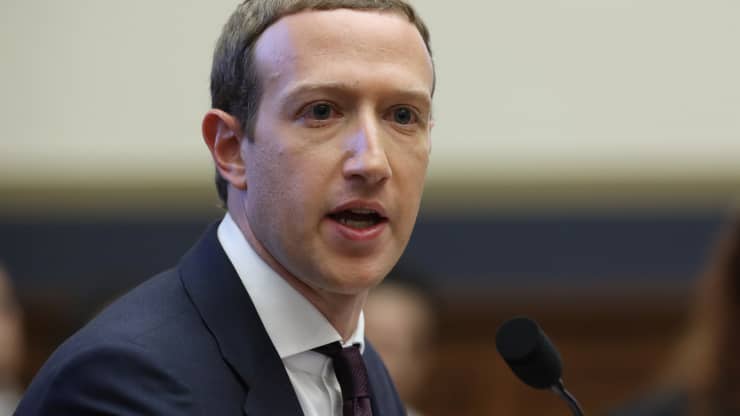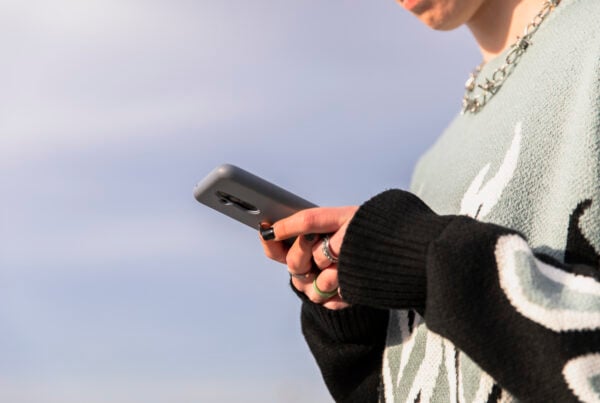Find out the week’s top mobile stories from around the world. This week.. Apple warns Chinese apps not to dodge its new privacy rules, Facebook may actually be in a ‘stronger position’ after Apple’s iOS 14 privacy changes, $16 attack shows how easy carriers make it to intercept text messages and much more…

Apple warns Chinese apps not to dodge its new privacy rules
FT
A cat-and-mouse game has begun between Apple and Chinese tech companies, as the iPhone maker tries to enforce its new privacy policies in China. Apple is expected to roll out changes to iPhones in the Spring that will give users more privacy from mobile advertising, a market that hit $240bn last year, according to App Annie. The changes will force apps to ask for permission before collecting tracking data on users, a move that has been bitterly fought by Facebook, since most users are expected to say no.
Read more…
Zuckerberg: Facebook may actually be in a ‘stronger position’ after Apple’s iOS 14 privacy changes
CNBC
Facebook CEO Mark Zuckerberg on Thursday said he is confident the social media company “will be able to manage through” Apple’s upcoming planned privacy update to iOS 14, which will make it easier for iPhone and iPad users to block companies from tracking their activity to target ads.
“We’ll be in a good position,” Zuckerberg said in a Clubhouse room Thursday afternoon.
Read more…
A Hacker Got All My Texts for $16
Vice
A gaping flaw in SMS lets hackers take over phone numbers in minutes by simply paying a company to reroute text messages.
I didn’t expect it to be that quick. While I was on a Google Hangouts call with a colleague, the hacker sent me screenshots of my Bumble and Postmates accounts, which he had broken into. Then he showed he had received texts that were meant for me that he had intercepted. Later he took over my WhatsApp account, too, and texted a friend pretending to be me.
Looking down at my phone, there was no sign it had been hacked. I still had reception; the phone said I was still connected to the T-Mobile network. Nothing was unusual there. But the hacker had swiftly, stealthily, and largely effortlessly redirected my text messages to themselves. And all for just $16.
Read more…
$16 attack shows how easy carriers make it to intercept text messages
Ars Technica
In a new article titled “A Hacker Got All My Texts for $16,” Vice reporter Joseph Cox detailed how the white-hat hacker—an employee at a security vendor—was able to redirect all of his text messages and then break into online accounts that rely on texts for authentication.
This wasn’t a SIM swap scam, in which “hackers trick or bribe telecom employees to port a target’s phone number to their own SIM card,” Cox wrote. “Instead, the hacker used a service by a company called Sakari, which helps businesses do SMS marketing and mass messaging, to reroute my messages to him.”
Read more…
Nigeria seeks to boost mobile banking with fixed transaction fee
Reuters
Nigerian regulators have set a flat fee for financial transactions done via mobile phones, replacing a billing system that caused disagreements between telecoms firms and lenders.
The Nigerian Communications Commission and central bank said on Tuesday they had agreed a flat fee of 6.98 naira ($0.0183) per transaction to ensure financial inclusion and lower costs.
Nigeria wants to open up its digital financial services sector, which will help millions of Nigerians who do not have bank accounts. But regulation has been caught up with intense lobbying from lenders seeking to protect their turf amid stiff competition and a rise in borrowers renegotiating loans.
Read more…
Ericsson powering Ireland’s first 5G standalone mobile private network
Ericsson
Ericsson Industry Connect, a purpose built off-the-shelf private network solution, will be installed at IMR’s facility in Mullingar by Vodafone Ireland as part of a collaboration to investigate the benefits of high-performance wireless connectivity in an industrial setting.
With the ultra-low-latency and quality of service that is enabled by 5G Standalone, IMR and Vodafone Ireland will work together to develop a series of innovative smart manufacturing 5G use cases that focus on automated production lines , predictive maintenance, mobile robotics, as well as augmented reality (AR) and virtual reality (VR) displays.
Women, men, young and old: How India is snacking on mobile gaming
Business Standard
Home to one out of 10 gamers across the globe, gaming is now competing with other popular entertainment categories such as short-form video, streaming services, and social networks for user attention in India. According to an InMobi mobile gaming report, the country has become the fifth-largest mobile gaming market across the world supported by access to affordable smartphones, low network data tariffs and improving mobile internet speeds. The onset of the Covid-19 pandemic also brought about a significant shift in mobile usage and consequently in mobile gaming too. According to estimates, 44 per cent of India’s smartphone population will be playing games on their devices by 2022.
Read more…
China Poised To Dominate The Artificial Intelligence (AI) Market
Forbes
If you, or your kids, are obsessed with TikTok, you might be surprised to hear that the company behind your favorite app is a giant artificial intelligence tech conglomerate in China. Many westerners have no idea that China is actually setting a course to become a world leader in AI, and that a number of key Chinese AI companies have already become a major part of everyday life in China, the United States, and the rest of the world.
Read more…
Consumer demand boosts wearable device market growth
Channel Life
Enthusiasm for wearable devices continues to grow, with overall shipments increasing significantly, according to new data from IDC.
IDC’s Worldwide Quarterly Wearable Device Tracker shows worldwide shipments of wearable devices reached 153.5 million in the fourth quarter of 2020 (4Q20), a year-over-year increase of 27.2%.
Shipments for the full year grew 28.4% to 444.7 million units. While the final quarter was largely driven by new devices and lower prices, the broader trend for 2020 was the surge in consumer spending for electronics as disposable income was reallocated from leisure activities during the pandemic, IDC states.













